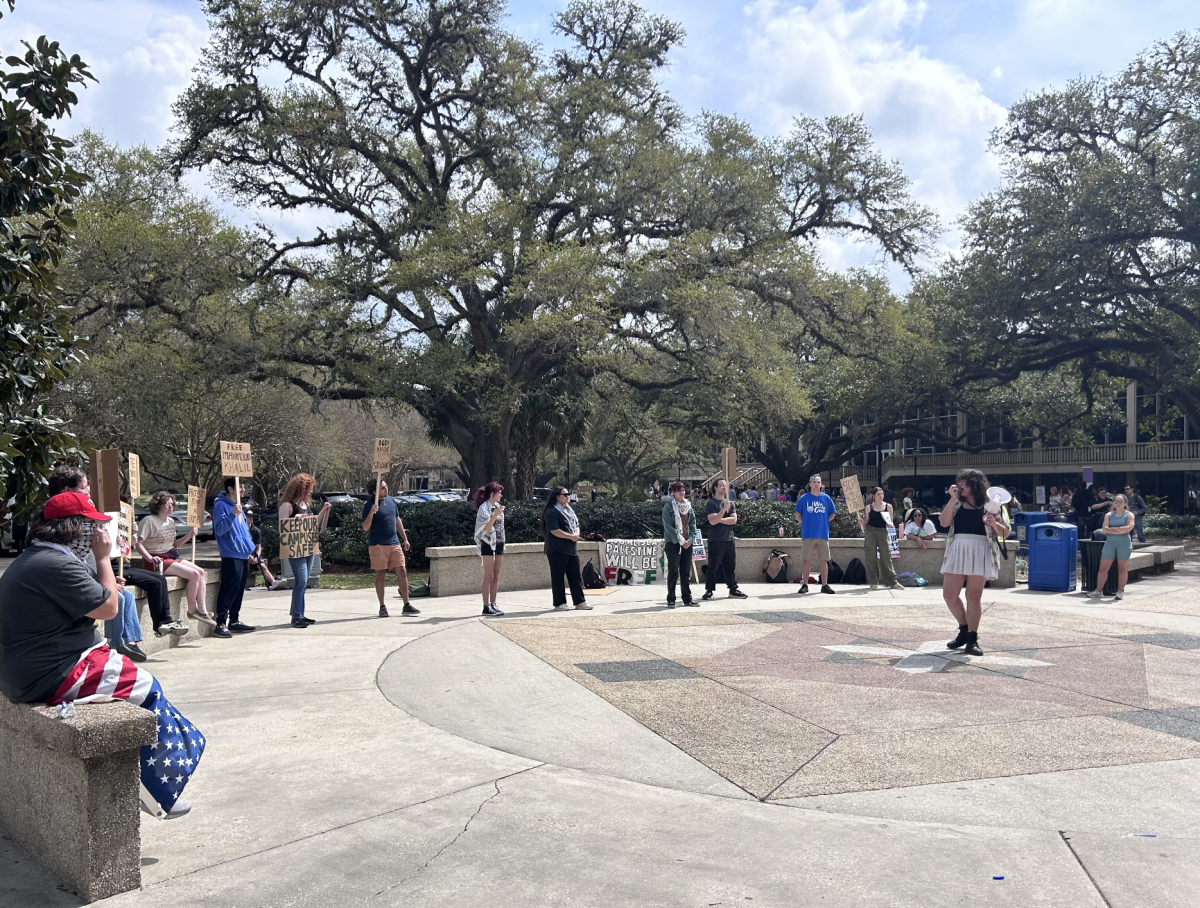Chancellor Michael Martin discussed the future of the University, stressing the importance of keeping the best students and faculty as he addressed Baton Rouge business owners and University administrators Tuesday.
Martin welcomed the public with his “The Future of the Flagship” address at Café Américain, presented by the Stephenson Entrepreneurship Institute of the E.J. Ourso College of Business.
Martin welcomed the inaugural group LSU One Hundred, an initiative dedicated to celebrating the fastest growing LSU-owned or LSU-led businesses. Martin emphasized the drive for an entrepreneurial spirit to be spread among all majors at the University.
“Breakfast to Business” began in 2009 as a connection between the business community and Executive Education and SEI. The series emphasizes supporting local businesses in the Baton Rouge area.
“We must continue to become a globally oriented institution,” Martin said. “With alumni around the world, our students experience an enriched education with international students. We may also construct trusting relationships with mentors in Baton Rouge businesses.”
Martin also discussed a need to become more inclusive locally. He said LSU must build bridges and not walls to form strategic partnerships, suggesting officials foster communication between the University and Southern University.
Martin noted the partnership between EA Sports and the Center for Computation & Technology as an example of creative professional opportunities available for students.
Students benefit from experience within the private sector as video game testers, he said.
Martin also addressed the LA GRAD Act 2.0 legislation signed by Gov. Bobby Jindal last week, saying the bill demands accountability from higher education while simultaneously allowing the University to be entrepreneurial.
Martin stressed the importance of forging relationships with community colleges across the state. He said community colleges may serve as a ladder to the University, rather than a filter.
He said graduate and transfer students usually don’t affect infrastructure as much as incoming freshman.
“The future of the flagship largely determines the future of business and economic growth for our area, state and region,” Robin Kistler, Executive Education director, said.
Business and industry rely on the University to produce new talent, the next generation of entrepreneurs, professionals and leaders, she said.
“Our research mission attracts new industries and helps economic developers grow new and existing revenue for our state,” Kistler said. “A healthy and robust public university like LSU attracts a healthy and robust economy.”
Martin’s aims included reducing dependence on appropriations from the state budget, building the University’s endowment and gaining a higher return on intellectual property. Even with appropriations cuts, Martin anticipates the student experience will not diminish.
—-
Contact Jalissa Bates at [email protected]
Martin speaks on future of University
July 21, 2011



